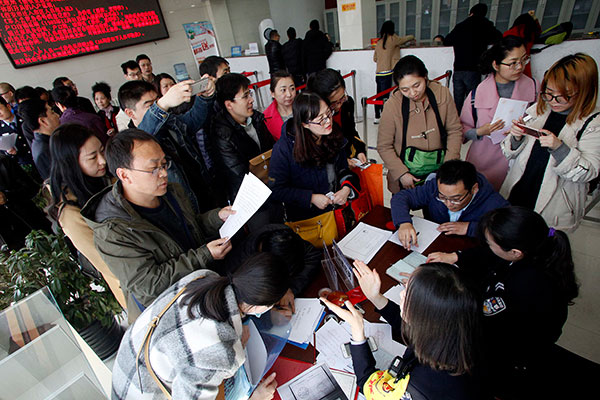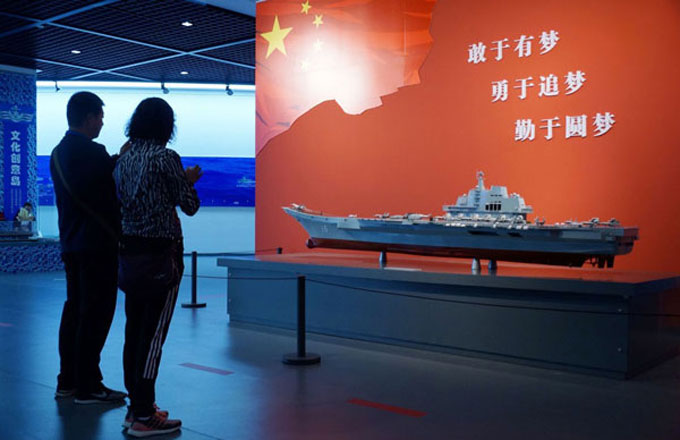Talent hunters give the best a fresh start
Li Xing, 27, who graduated from Hubei University in 2015 with a bachelor's degree in Chinese, got one of the first 3,605 apartments in Wuhan in July. The primary school Chinese teacher said she only pays 1,400 yuan a month for her apartment, but the market rent is at least 2,700 yuan. And she also enjoys free tap water and electricity.
Changsha will give subsidies of 15,000 yuan and 10,000 yuan to those with doctorates and bachelor degrees respectively and 6,000 yuan for a master's degree for the first two years after they settle down and work in the city.
The fierce competition for talent is taking place against the backdrop of a changing economic structure.
The country is upgrading its economy to make it more knowledge-based and technology-driven. This has brought major cities huge opportunities, said Guo Sheng, chief executive officer of Zhaopin.com, a leading recruitment website in the country.
Ni Pengfei, director of City and Competitiveness Research Center at the Chinese Academy of Social Sciences, agrees. "Generally speaking, GDP growth in many cities has been more and more innovation-driven rather than capital-driven," he said. "The new development mode is highly related to talent and technology. This is why there has been such fierce competition for talent."
According to a "comprehensive business index" formulated by CBN Weekly, 15 cities are recognized as "new first-tier cities", including the Zhejiang provincial capital, Hangzhou, Jiangsu provincial capital, Nanjing, Sichuan provincial capital, Chengdu, and Qingdao in Shandong province, as well as Wuhan, Tianjin, Xi'an and Chongqing.
The competition for talent is just the primary stage of a broader industrial competition among major cities. These cities are now accumulating reserves for further industrial competition, which will be fiercer and fiercer, Ni told Oriental Outlook magazine.
Cities like Wuhan deserve applause for the preferential policies they introduced, but there will be far more intense competition for talent in the country, said Xie Shouguang, director of the Social Sciences Academic Press, who specializes in sociological surveys.
"It has been almost 40 years after reform and opening-up was introduced in China. In the past 40 years, 'investment promotion' was one of the most important slogans for the country. Now the slogan needs to be changed to 'talent introduction'," he said.
- China's holiday tourism market remains stable
- Hebei launches campaign targeting pollution-related crime
- Tourist police kept busy during China's extended National Day holiday
- China publishes new collection of Lenin's writings
- China schedules 503 extra train services to meet rising holiday traffic























